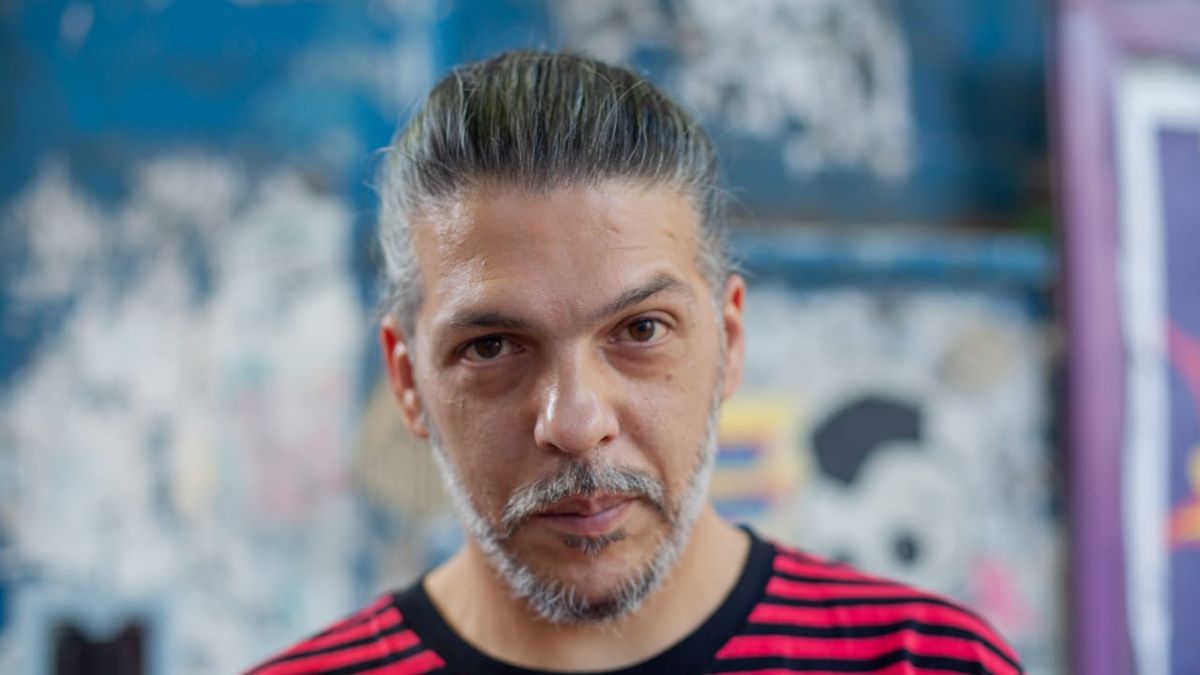The sentimental debt of concluding an investigation into a group of intellectuals that collaborated with the dictatorship in capturing dissidents, advances towards a future where the device created by the “Argentine School” serves the transgression of speaking with the dead. This occurs in the exceptional novel of Juan Mattio “Materials for a nightmare” (Black box) that reappears after being exhausted. Mattio It was Best Seller with his policeman “Three times light” And with the admirable “Materials for a nightmare” He won the Filba-Medifé award. We dialogue with him.
Journalist: The novel starts from a love story that leaves an inheritance, becomes a police officer who investigates a repressive machine, and tells a future subversive programmer who prepares a way of communicating with the dead. How did this universe built?
Juan Mattio: In “Three times Luz” I tried to look like a novel. I was insecure, I had never written one. I wanted when it ended it would be said: Yes, it is a novel. With “Materials for a nightmare” I discussed some logic of the novelistic, for example, the narrative progression. The idea of the action that advances without interruption from beginning to the end. The research materials that Keiner, inheritance of his beloved Katy, interrupts with quotations, fragments, relief, data, the progression of the reader, questions the shape of the novel. William Burroughs, among others, worked in the same way. If I am interested in literature it is because I am interested in language. I needed to write a text where I could think about the conditions in which we use language. Exit the reassuring idea that it is a transparent communication event. And postulate that it is opaque, of a certain anguish, of a certain loneliness. That could only say it in a novel that would allow me to move by shapes and genres. When I found the story of a machine that pursued the language during the dictatorship, I told myself here there is a story to tell. This is what Katy discovered, when I was a researcher at the National Library, and asks Keiner to move forward.
Q.: How does the group of linguists, psychologists, conducted by the writer Miguel Jemand, who carry the Hermes project that detect the words of the dissidents?
JM: It is usually believed that the writer is a progressive figure. Rever the history of the twentieth century, know of Celine, Faulkner, Mishima, among others, denied it. I was interested in including a writer to collaborate with the intelligence of the State, which would be fascinated with a linguistic, technological project and that it does not respond to the innocent postulate that intellectuals are pure beings connected to the spirit. It is interesting in a country where the central figure is Borges, which opens a palette of contradictions and discussions.
Q.: On the theme of the machine, do you follow in the footsteps of Macedonio, Borges and Piglia?
JM: The three by different routes reach similar conclusions. While their books are very different show the possibility of the text of reflecting on themselves, working with popular genres, qualified as minors: the fantastic, police, terror, science fiction. Both Borges and Piglia show that these genres do not prevent the experimental or formal rupture. Speculation about language in “materials …” is a condition for the novel to think about itself, a very Borgian gesture.
Q.: When repression apologies are heard, your novel seems to take unexpected actuality.
JM: When he left in 2021 there were no such public and obvious denialist speeches. It seemed that we were in a durable consensus. The new edition meets an explicit denialism. What literature does while these socio-political processes happen, is to try to elaborate what happened and extract a type of truth, which is neither documentary nor journalistic, but that helps the general process that society does in relation to historical facts. Bring the theme again and again from different approaches. Not to finish but to try to make some meaning to what happened.
Q.: The programmer Haruka, in 2036 investigates what the “Argentine School” did with Hermes, the machine to collaborate with repression. Does she believe that the virtual is revolutionary by recovering the voice of the dead and dialogue with them?
JM: For Haruka, technology is neither bad or political. What matters is in what social relationship we include it. The problem is not the virtual reality but the social use we give, the place it occupies in the relationship between people. Haruka is desperate because he faces a closed political horizon. He clings to the utopia of the machine because he has no other possibility.
Q.: Do you think, with Mark Fisher, that there is nothing other than capitalism?
JM: Haruka from the first world participates in capitalist realism. As an anarchist who, instead of doing direct action from violence, makes it from technology. In the novel finally the Cyberpunk gives materialistic support to the ghost story.
Q.: Nieva in “Capitalist Science Fiction” points out the current challenges of science fiction
JM: Michel (Nieva) captures something very interesting: how the futuristic imaginary science fiction was recaptured by technological billionaires. The subtext is: the future exists, there are space trips, Mars’s terraft, technology collaborating to make life easier … but for few, for an elite of billionaires. That is, the future is unevenly distributed. You have to think from Latin American science fiction, the Cyberpunk, the Weir, from this that is happening.
Q.: What are you writing now?
JM: A new novel that will be close to “Materials …” to the extent that technology has an important role in the plot, and will be distant from the shape of the novel.
Q.: Is Cyberpunk as in “Materials” what the programmer Haruka does in 2036?
JM: The categories serve me to think, but little to write. I don’t know what genre the readings will be located.
Source: Ambito
I am an author and journalist who has worked in the entertainment industry for over a decade. I currently work as a news editor at a major news website, and my focus is on covering the latest trends in entertainment. I also write occasional pieces for other outlets, and have authored two books about the entertainment industry.




